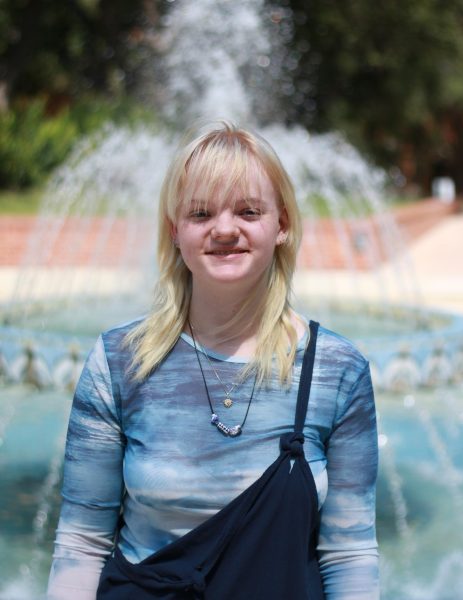Trinity University’s acceptance rate fell to 28%, the lowest in its history, after welcoming 664 first-year students into the class of 2027. Before arriving on campus, Gaby Nieraeth, first-year intended communication major, was especially eager to be a part of the university’s newest class of students. Since the school year has started, she has been even more enthusiastic.
“Specifically going [in] to Trinity, I was really looking forward to small classes, knowing my classmates and knowing my professor by name … but [Trinity] has totally exceeded my expectations,” Nieraeth said. “There [have] been times where my professor said my name and I was like ‘Oh! I didn’t even know you knew my name.’ So Trinity’s definitely met [my expectations] so far just two weeks in.”
Trinity provides a lot of open doors to students who are coming into college unsure of what they want to pursue later on in life. Danielle Semine, first-year intended psychology major, expressed her optimism about the university’s flexible and supportive nature.
“I am interested in psychology as of right now,“ Semine said. “I don’t know if I want to be a therapist but that was definitely the appeal of Trinity because I don’t know what I want to do. And Trinity is very big on helping students find what they’re good at and what they can do. That’s why I chose this school; [what I want to do] is up in the air for me.”
Another example of the opportunities the university has to offer is the Skyline Scholars Program, previously known as the Summer Bridge Program. This program allows incoming first-years to see what life at Trinity is like two weeks prior to the official start of the school year. Participants are able to start their First-Year Experience course early and attend workshops that help students slowly ease into collegiate life.
Keyla Limones, first-year intended international studies and political science double major and English minor, was one of Trinity’s 65 new students to be a part of this revamped program.
“I was part of the Skyline Scholars program so I was able to experience campus during the time that it was pretty much empty. … I didn’t have any roommates, suitemates or even balcony-mates, so it was very quiet,” Limones said. “I could also explore and do things between or after classes. There was no line or hassle or bumping into people.”
Since the Skyline Scholars program ended and the fall semester started, Limones has gotten a taste of what college looks like when it is full of people.
“I wouldn’t say it is a bad thing that [college] wasn’t what I expected,” Limones said. “It’s much more social and you can clearly see what [Trinity was] talking about, about community, about people becoming involved in so many different things. … It’s crazy how many people know each other.”








